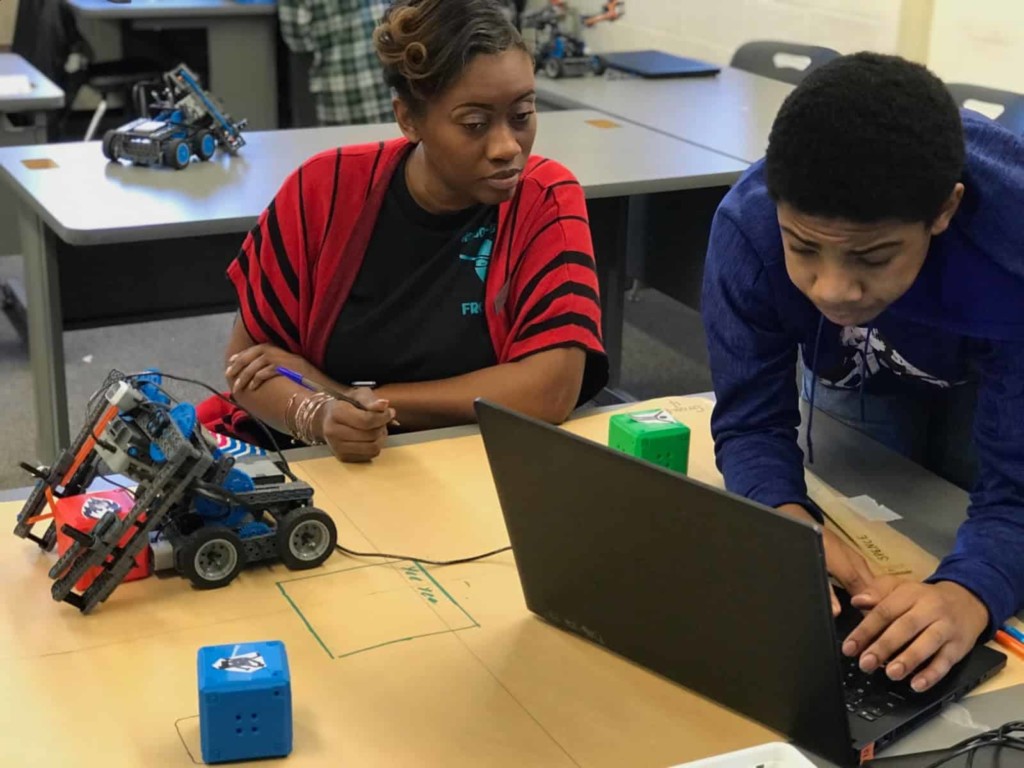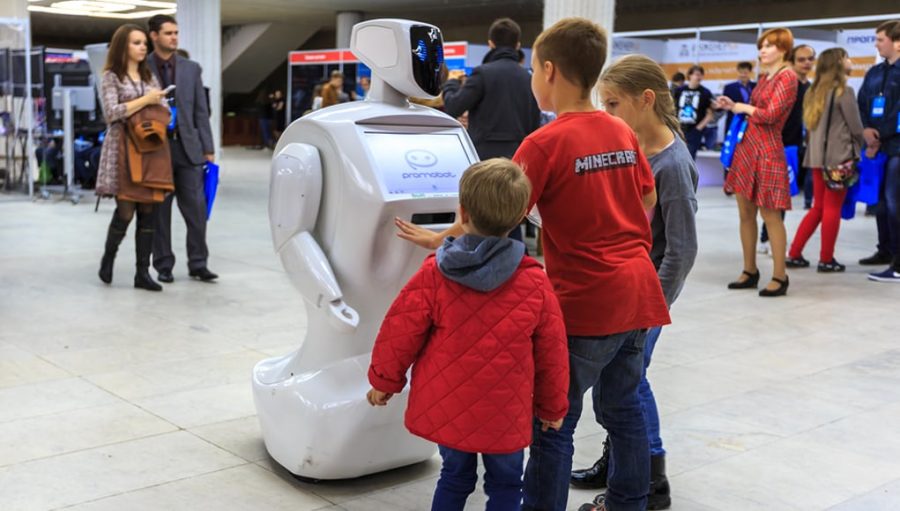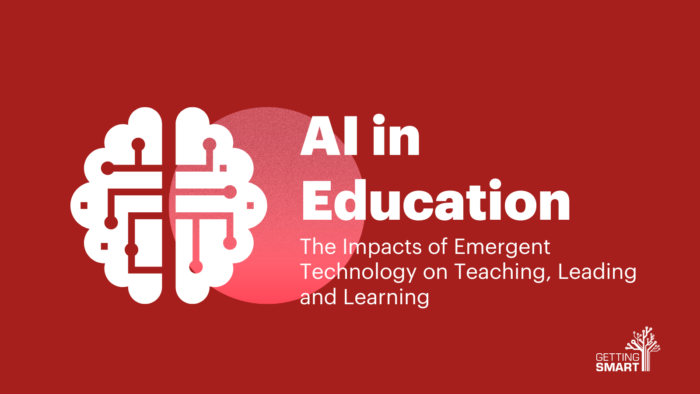Introduction
The technology sector in the United States is undergoing rapid transformation, presenting both significant opportunities and challenges for the emerging workforce, particularly within the K-12 educational system. As digital technology continues to transform industries, it is essential to understand how these changes will impact the talent pipeline. This resource explores the current trends, challenges, and opportunities in the tech workforce, emphasizing the importance of early preparation and integration of real-world experiences into education.
The tech sector offers a wealth of opportunities for students and emerging professionals. According to the World Economic Forum’s “Future of Jobs Report 2023,” the demand for technology-related roles is expected to grow (and change) significantly, with AI and Machine Learning Specialists, Business Intelligence Analysts, and Information Security Analysts among the fastest-growing job categories. This growth is driven by advancements in AI, machine learning, and the increasing digitization of business processes.
Moreover, the McKinsey Technology Trends Outlook 2023 highlights the substantial economic potential of technologies such as generative AI, which is poised to add up to $4.4 trillion in economic value. This underscores the importance of equipping students with the necessary skills to thrive in these high-growth areas. YouScience found that 32% of students have an aptitude for careers in computers and technology. Out of these students, 75% more students have an aptitude for careers in computers and technology than interest.
Despite the abundant opportunities, there are significant challenges in developing a robust talent pipeline for the tech sector. One primary issue is the skills gap. Many employers report difficulty finding candidates with the necessary digital skills, such as coding, data analysis, and platform-specific knowledge. The ManpowerGroup’s “2023 Workforce Trends” report emphasizes that while technology enables transformation, the human element remains crucial. Companies are struggling to find and retain tech talent, with a significant gap between the demand for tech skills and the available supply of qualified professionals.
Additionally, the experience gap further complicates entry into the tech workforce. The World Economic Forum report notes that the pace of automation and the introduction of AI are shifting job requirements, making entry-level positions more demanding. For instance, cybersecurity roles that once required minimal experience now demand advanced certifications and several years of hands-on experience. This trend is echoed by Gartner’s “Future of Work Trends for 2023,” which highlights the need for organizations to adopt nontraditional approaches to talent acquisition, focusing on potential rather than prior experience.
Apprenticeships and work-integrated learning programs are critical for bridging the gap between expressed aptitudes and possible careers. As apprenticeships expert Ryan Craig points out, “Apprenticeships provide a practical, hands-on approach to learning, offering paid, on-the-job training that prepares individuals for the demands of the modern workforce. This model is particularly effective in the tech sector, where practical experience with digital tools and platforms is crucial. […]I think it’s important now more than ever because the skills that employers are finding hard to find—those digital skills, those platform skills—are actually harder to learn in a classroom than they are by doing. “
To address these challenges, it is crucial to integrate real work experience into the educational pathways of K-12 students. Apprenticeships, internships, and boot camps provide practical, hands-on experience that complements classroom learning. Schools and districts can partner with local businesses and industries to create opportunities for students to engage in meaningful work experiences
The Digital Technology Career Cluster combines the development of digital systems that support communication and data storage using critical technologies like artificial intelligence, data analytics, and cybersecurity. It prepares professionals to navigate and lead in the constantly evolving tech landscape, focusing on everything from software development to data analytics to cyber safety. This cluster drives innovation across all industries and clusters to tackle complex challenges and opportunities in our communities and economies.
This cluster is cross-cutting, meaning that all sectors will be influenced by emerging technologies and that skill sets in the digital technology field will be hyper-transferable to new and different industries. Some of the technology-related sub-clusters are:
Data Science & Artificial Intelligence:
- Combines data analysis, machine learning, and AI to interpret vast amounts of information.
- Automates decision-making processes and improves user experiences.
- Enhances efficiency, personalizes experiences, and drives innovation.
- Sample Programs of Study: Applied Data Science & Analytics.
Information Technology (IT) Support & Services:
- Provides assistance and problem-solving for software, hardware, and other technology-related issues.
- Ensures smooth and efficient operation of communication and data systems.
- Sample Programs of Study: Information Support & Services.
Network Systems & Cybersecurity:
- Establishes and manages communication networks.
- Protects networks from threats, including setup, administration, maintenance, and security implementation.
- Prevents unauthorized access and data breaches.
- Sample Programs of Study: Computer Networking, Cybersecurity, Information Technology Systems.
Software Solutions:
- Involves development and maintenance of software solutions.
- Includes programming, application development, and software design.
- Integrates emerging technologies like augmented reality/virtual reality (AR/VR), the Internet of Things (IoT), and AI.
- Focuses on user experience (UI/UX) and backend technologies.
- Sample Programs of Study: App Design, Computer Simulation, Game Development, Programming.
Unmanned Vehicle Technology:
- Development, operation, and use of unmanned vehicles (UAVs, drones, autonomous ground vehicles).
- Applications in surveying, precision farming, search and rescue, delivery services, and infrastructure inspection.
- Involves data analysis and operational management.
- Sample Programs of Study: Drone Technology, Unmanned Aircraft Systems.
Web & Digital Communications:
- Manages websites and web applications, focusing on front-end and back-end development.
- Involves skills in UI/UX design and cloud management.
- Ensures functionality, security, and efficiency.
- Sample Programs of Study: Web & Digital Communications, Web Development, Cloud Computing.
Entrepreneurial Opportunities & Future Roles
Digital technology makes it easier than ever before to find ways to contribute to your local and global community. Similar to the way we saw access to the internet create a flourishing entrepreneurial landscape, generative AI, blockchain, and other technologies will create a myriad of new business opportunities and needs. Students will be able to combine their skills in radically new ways to create unique and valuable products and services. Throughout this appendix, we will provide examples of emerging entrepreneurship opportunities in other sectors that heavily leverage technology pathways.
Credentials
- Google Data Analytics Professional Certificate: This certificate provides a comprehensive introduction to data analytics, covering data cleaning, analysis, and visualization using tools like SQL, R, and Google Sheets. Designed for beginners, it helps learners develop job-ready skills to begin a career in data analytics.
- IBM Data Science Professional Certificate: This credential focuses on the key tools and methodologies in data science, including Python, SQL, and machine learning. Learners will gain hands-on experience with real-world data and projects to prepare for a career as a data scientist.
- Microsoft Certified: Azure AI Fundamentals: This certification offers foundational knowledge of artificial intelligence (AI) and machine learning (ML) concepts and their implementation using Microsoft Azure. It is ideal for individuals looking to understand AI applications and services within the Azure ecosystem.
- CompTIA A+, Network and Security Certifications: These certifications provide foundational skills for IT professionals. CompTIA A+ covers essential hardware and software troubleshooting. Network+ focuses on networking technologies, and Security+ addresses cybersecurity fundamentals, preparing individuals for roles in IT support, networking, and security.
- Google IT Support Professional Certificate: These certifications provide foundational skills for IT professionals. CompTIA A+ covers essential hardware and software troubleshooting. Network+ focuses on networking technologies, and Security+ addresses cybersecurity fundamentals, preparing individuals for roles in IT support, networking, and security.
Industry Leaders
IBM
IBM has been a leader in credentialing and skills-first hiring, focusing on developing and credentialing new technology skills for over a decade and starting even as far back as the development of the P-TECH model. In conversation with Lydia Logan, Vice President, Global Education and Workforce Development, Corporate Social Responsibility at IBM, she shared about recent releases on their Skills Build platform, IBM commits to training millions of people in AI, green skills, and other areas by 2030, emphasizing the importance of credentials for workforce development. This platform aims to ensure that people are not left behind in the rapidly changing job market. IBM’s elimination of the four-year degree requirement for many jobs has increased diversity in their applicant pool.
Among many upskilling offerings within Google’s suite of resources, Grow with Google boasts great results both within Google’s own hiring and external organizations. A recent survey shows that 75% of program graduates report a positive career outcome (e.g. a new job, promotion, or raise) within six months of completion. The Google Career Certificate Program offers online, on-demand training in fields like data analytics, project management, IT support, UX design, digital marketing, and cybersecurity. These certificates are used in colleges, universities, and high schools and are recognized by many employers as valuable credentials.
The American Council on Education (ACE) recommends these certificates for college credit, allowing high school students to earn college credits. Google’s employer consortium posts jobs directly to their job boards, making it easier for certificate holders to find relevant job opportunities. Google also integrates AI essentials training with career certificates to keep learners updated with the latest technological advancements.
Amazon Future Engineers
An opportunity for students to learn how computer science, engineering, algorithms, and machine learning are used in Amazon’s fulfillment centers. There are options to take a tour focusing on computer science, or interact with an Amazon tour guide, or sign up for a one-hour learning experience. There are many resources including slides and activities aligned to the computer science standard available in the Teacher Toolkit.





